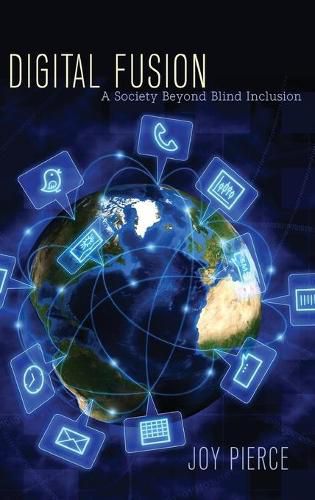Readings Newsletter
Become a Readings Member to make your shopping experience even easier.
Sign in or sign up for free!
You’re not far away from qualifying for FREE standard shipping within Australia
You’ve qualified for FREE standard shipping within Australia
The cart is loading…






This title is printed to order. This book may have been self-published. If so, we cannot guarantee the quality of the content. In the main most books will have gone through the editing process however some may not. We therefore suggest that you be aware of this before ordering this book. If in doubt check either the author or publisher’s details as we are unable to accept any returns unless they are faulty. Please contact us if you have any questions.
The first national recognition of disparities in access to information technologies - a digital divide - surfaced in a 1995 report by The National Telecommunication and Information Administration. Despite efforts to close the gap and promote digital inclusion, statistical data over the course of nearly 20 years indicate a significant disparity remains in poor and minority communities. In this accessible yet scholarly work, Joy Pierce illustrates the need to examine the societal status of information technologies at the micro level. Digital Fusion is a sustained and integrated project that combines more than a decade of community participatory research in two regions of the United States. Using qualitative research methods and drawing from critical cultural studies and social theory, Digital Fusion is an interdisciplinary project that engages digital literacy and social justice issues related to race, ethnicity, language, class, and education. Thought-provoking, multi-vocal, and multi-lingual narratives from racial and ethnic minorities as well as institutional administrators lay the groundwork for potential policy implications and digital infrastructure and design. Digital Fusion illuminates the complexities of digital access and use at the micro-level and offers a participatory project that seeks to co-create a digital space; one that speaks to the specific cultural, linguistic, and social needs of underrepresented communities.
$9.00 standard shipping within Australia
FREE standard shipping within Australia for orders over $100.00
Express & International shipping calculated at checkout
This title is printed to order. This book may have been self-published. If so, we cannot guarantee the quality of the content. In the main most books will have gone through the editing process however some may not. We therefore suggest that you be aware of this before ordering this book. If in doubt check either the author or publisher’s details as we are unable to accept any returns unless they are faulty. Please contact us if you have any questions.
The first national recognition of disparities in access to information technologies - a digital divide - surfaced in a 1995 report by The National Telecommunication and Information Administration. Despite efforts to close the gap and promote digital inclusion, statistical data over the course of nearly 20 years indicate a significant disparity remains in poor and minority communities. In this accessible yet scholarly work, Joy Pierce illustrates the need to examine the societal status of information technologies at the micro level. Digital Fusion is a sustained and integrated project that combines more than a decade of community participatory research in two regions of the United States. Using qualitative research methods and drawing from critical cultural studies and social theory, Digital Fusion is an interdisciplinary project that engages digital literacy and social justice issues related to race, ethnicity, language, class, and education. Thought-provoking, multi-vocal, and multi-lingual narratives from racial and ethnic minorities as well as institutional administrators lay the groundwork for potential policy implications and digital infrastructure and design. Digital Fusion illuminates the complexities of digital access and use at the micro-level and offers a participatory project that seeks to co-create a digital space; one that speaks to the specific cultural, linguistic, and social needs of underrepresented communities.